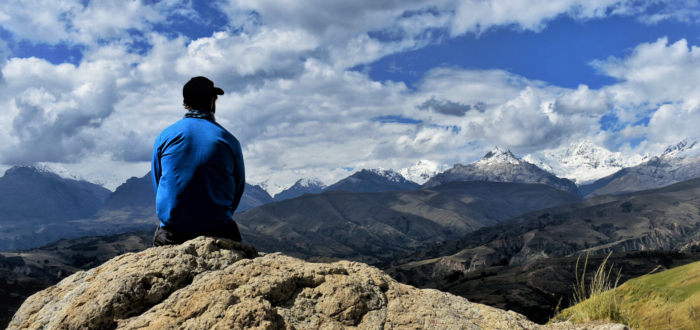Essay: A Voice In Nature's Choir
The following is an essay I composed for the Youth International Essay Competition. The prompt asked: “What can we learn from nature?”
My essay was distinguished as an honorable mention, one of only 64 essays to place or receive mention, including one of only two American compositions chosen in the contest. The competition received over 15,000 submissions from over 150 countries.
See more about the competition here: https://www.goipeace.or.jp/en/work/essay-contest/
Many thanks to Luke, Nate, Jules, Jacob, Dillon, Bryce, Luckoff, Sammi, Mom and Dad for the conversations, critique and input which inevitably formed the final result.
Enjoy!
A Voice In Nature’s Choir
What can we learn from nature? From the gentle rustling of leaves; from the harmonious symphony of bird song; from the ever changing shades of forest green?
Nature offers simplicity – a rest from incessant stimulation and mental exhaustion. It asks for our presence – for our mind’s attention to be aligned with our body’s location. If we stay long enough we can learn of our own simplicity, enabling ease of thought and mind.
Nature offers silence – a break from mechanical grinding and hammering metal. It asks for us to listen – for our senses to be dripping with curiosity. If we stay long enough we can learn of our own silent nature, lengthening the duration between thoughts and opening up space in our minds.
Nature offers a vacuum void of judgment – a respite from profiling and stereotypes. It asks for simple interactions guided by purity. With prolonged presence, we can learn of our non-judgmental nature, seeing things how they are instead of how we believe they should be.
Nature offers an alternative to greed – a recess from excessiveness and profligate waste. It asks for our competition to occur in the name of survival – to take only what is necessary. With enough time, we can learn of our own satiety, taking just what we need, no more and no less.
Nature’s lessons contain the essence of harmonious living. It embodies life’s playful, delicate equilibrium – responding to immediate necessity without ever rushing. We learn to join the chorus of life’s reciprocal rhythm, living in balance with ourselves, and all other beings which inhabit this more-than-human world.
I’ve come to understand these sentiments through prolonged study with a medicine woman, daily meditation practice, and repeated solitude in nature. As my perception evolves, so has my understanding. I’ve seen how our societies define nature as “the land” – viewed as human resources – which we develop only for our benefit. When we have an intimate relationship with nature, we no longer see it as “the land” needing “development.” Rather, we come to realize it as a flux of forces – continually flowering, fruiting, maturing, and breathing. Today, as I travel the world, I intend to learn from the wisdom of nature and its communities of life. I feel I am continually deepening my connection with the world’s inhabitants. I hope to use these sentiments to guide a disconnected Western world back home.
Western societies tell us happiness is something to develop: presently sacrificed in hopes of distant obtainment. But in nature, we realize the opposite. Happiness is not obtained through meeting specific conditions: building unnatural structures, sterilizing our surroundings, or obtaining external possessions. Rather, it is accessed when we have peace with our current situation; in union with the life around us in each and every moment.
If we wish to learn from nature, we must listen and be present, gradually deepening our relationship with the planet’s community of life. This relationship is the root of joy and love, the true source of happiness – formed of simple shared time and space.
In these modern times of senseless destruction, it is imperative that our youth take time to develop their own conception of what life means. Our future generations have an opportunity to learn from a completely different classroom, which offers astounding lessons. Nature-based education allows for transformation of their textual understanding into visceral perception and their analytical intelligence into practical wisdom. It offers a step away from the consumerist journey by placing them on the great internal journey. And, when children learn through personal experiences instead of cultural programming, they develop unique perspective outside of external dictations. Instead of having their experiences distorted by the theories of others, they learn to mold their theories according to personal experiences.
Finally, nature is transcendent. In a world measured by financial, technological and analytical productivity, we often become so captivated by thought that we forget about the present. Nature offers a gateway to the opposite – an opportunity to become so captivated with the present that we forget about thought. It enables a realization and transformation of the most primal parts of our being – our own wild nature.
